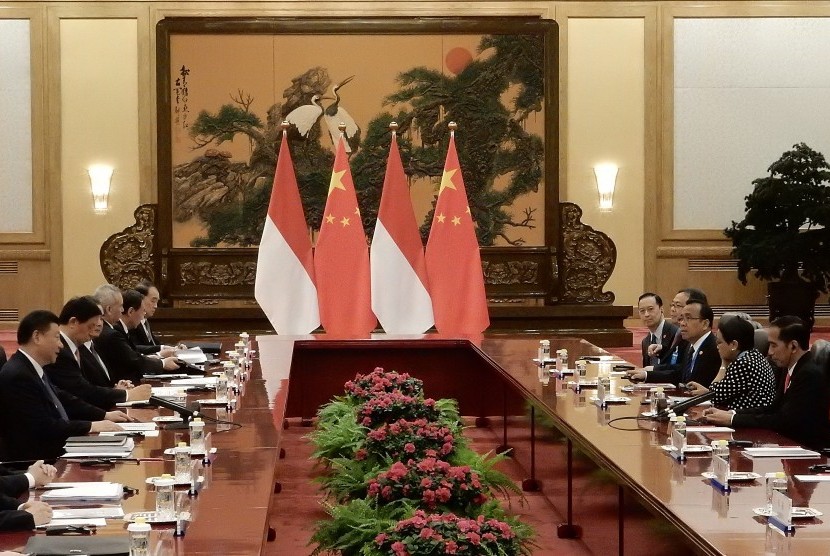REPUBLIKA.CO.ID, KUPANG -- Indonesia could earn economic gain from the two-day One Belt and One Road Forum meeting in Beijing ending on Monday especially in its program of infrastructure and tourism development, an economist said here on Tuesday.
Dr James Adam from the International Fund for Agricultural Development (IFAD), said there were a number of significant results of the meeting benefiting Indonesia.
The bilateral talk with China could result in an increase in the country's export of crude palm oil (CPO) to that country and the meeting between President Joko Widodo and Polish Prime Minister Beata Maria Szydlo was expected to promote cooperation between the two countries in investment, tourism and infrastructure development.
China is a major consumer of CPO and Indonesia is the world's largest supplier of the commodity.
Dr James said the summit meeting, which focused on strengthening connectivity and economic and investment cooperation in countries along the legendary Silk Road, would be a challenge for Indonesia to become a hub of ASEAN hub with China as Asian hub.
China has long sought to strengthen maritime cooperation with ASEAN countries mainly Indonesia by utilizing the China-ASEAN Maritime Cooperation Fund formed by Beijing.
"This is an open opportunity. It is left for Indonesia or the government of President Joko Widodo to make use of the opportunity to draw investors to do business in Indonesia," he said.
China needs to involve Indonesia as the most important part of its vision of modern Silk Rood. In 2015, there was an agreement between the two government of the two countries and the agreement was strengthened in May, 2017.
In 2015, the two countries discussed a number of cooperation projects including program for the empowerment of coastal community in East Nusa Tenggara. In October, 2013, there was n agreement to build 13 units of Industrial Estates.
The 13 industrial estates included one in Kuala Tanjung (North Sumatra), Sei Mangkei (North Sumatra ), Tanggamus (Lampung), Batulicin (South Kalimantan), Ketapang (West Kalimantan), Mandor (West Kalimantan), Bitung (North Sulawesi), Palu (Central Sulawesi), Morowali (Central Sulawesi), Konawe (Southeast Sulawesi), Bantaeng (South Sulawesi), Buli (East Halmahera, North Maluku), and Teluk Bintuni (West Papua).
The entire projects would need large fund of Rp55.4 trillion especially for industrial estate outside Java. The fund did not include Rp1.1 trillion for other infrastructure projects such as seaport and supporting facilities.
The Indonesian government hopes the projects would be financed by foreign investors from China.


